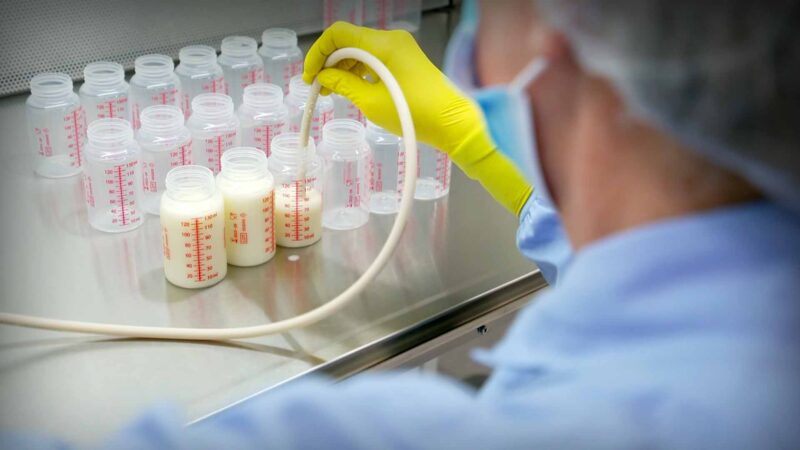RESEARCHER PROFILE
Professor Ernst J. Wolvetang
Australian Institute for Bioengineering and Nanotechnology
The University of Queensland
Australia
Professor Ernst Wolvetang obtained his PhD from the University of Amsterdam, continued his post-doctoral training at the Monash Institute for Reproduction and Development, before joining the Australian Stem Cell Centre.
In 2008 he was recruited to the Australian Institute for Bioengineering and Nanotechnology at The University of Queensland (UQ). He currently heads the Stem Cell Engineering Laboratory and directs the Australian Organoid Facility at UQ as well as the Phenomics Australia NNAT node at UQ.
He is a leader in the derivation, genome editing and disease modelling with human induced pluripotent stem cell and organoids derived from these. Professor Wolvetang is known as our “Mr Organoid” for his trailblazing approach to this exciting field of medical research. He is a pioneer in the field of pluripotent stem cell biology, whose frank and colourful turn of phrase underscores the passion he has for his work.
Professor Wolvetang was among the first to bring the first human embryonic stem cells to Queensland, with his Wolvetang Group at the AIBN now renowned for its work with organoids: growing them, studying them, and using them to try and understand diseases and human development.
Using cutting edge technology, Professor Wolvetang designs and grows organoids both for their own work and for labs across the country, coaxing pluripotent stem cells or tissue samples into 3D structures that mimic the function and architecture of real brains, livers, kidneys, spinal cords, and intestines.
Crucially, Professor Wolvetang says organoids could one day negate the need for animal models, as they can be designed to replicate what is happening inside an individual patient, offering researchers a unique opportunity to study personalised responses to new treatments.
He says this could shave years off the drug development process and – ultimately – the time between diagnosing a problem and delivering the solution.
“Once we demonstrate the power and accuracy of this approach for one genetic disease, it could open the door for testing of other gene therapies for a range of genetic neurological conditions.”, says Professor Wolvetang.
You Might also like
-
Investigating the benefits of donor human milk for preterm infants
Together, SAHMRI and Lifeblood are leading a consortium to revolutionise the way human milk, and novel products made from human milk, are used as nutritional and medical interventions to improve health outcomes in vulnerable infants, but with potential application for a diverse range of medical indications.
Currently, babies who are born early preterm – before 32 weeks – are given donor milk when their own mother’s milk is not available or in short supply. Whether donor milk is beneficial for babies born just a few weeks early is unclear, as very little research has been undertaken with these babies.
The GIFT Trial will soon commence as an investigation between SAHMRI, the University of Adelaide, the Red Cross Lifeblood Milk Bank conducted at five sites across three states in Australia.
-
Role of Community Paramedicine in Non-Emergency Presentations
Dr Robbie King is a Lecturer in paramedicine and researcher at the Australian Catholic University (ACU) Brisbane. He also continues to provide clinical care as a registered paramedic for community members served by a jurisdictional ambulance service. Dr King has gained significant experience working in an advanced practice, community paramedic style role, holding expert clinical insight into the nuances of paramedic-led community-based healthcare for non-emergency presentations. This often involves adopting a biopsychosocial approach, rather than following the biomedical model more associated with emergency medicine and paramedic culture.
-
Junior Fellowship to develop vaccine for bacteria that cause ear infections
Dr Erin Brazel has a background in molecular and translational microbiology, with a focus on developing new ways of preventing and treating bacterial diseases. Recently Dr Brazel has been awarded a Junior Fellowship by the Passe & Williams Memorial Foundation.
The fellowship enables outstanding individuals to obtain postdoctoral training under the supervision of an experienced clinical or scientific researcher, with the view to establishing a research career in Otolaryngology, Head and Neck Surgery in Australia and/or New Zealand.



